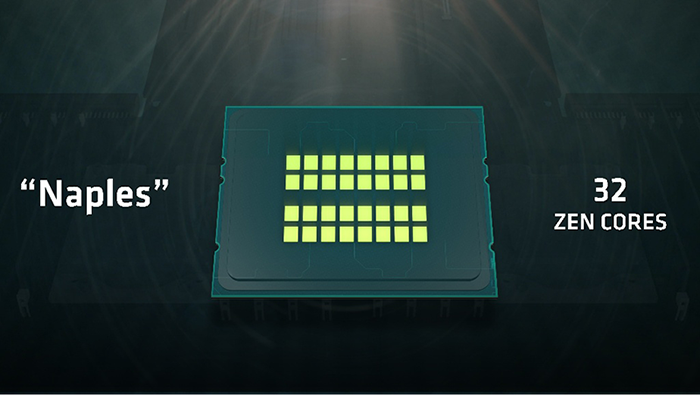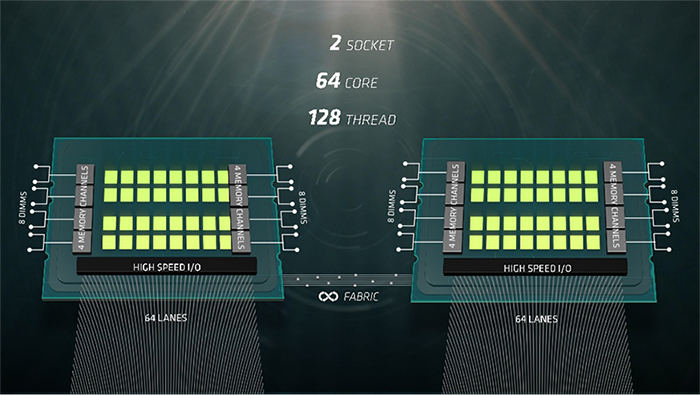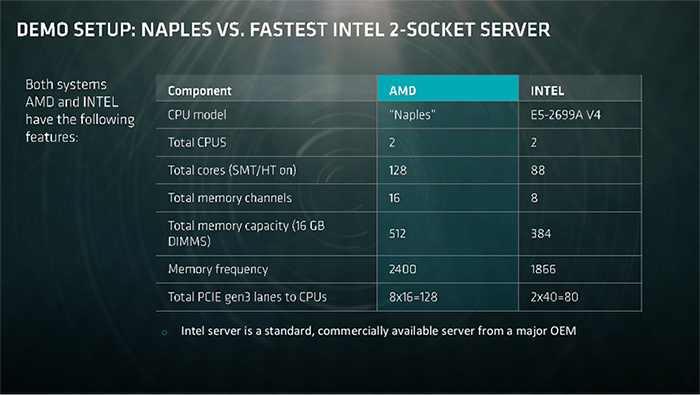The launch of AMD's desktop Ryzen processor was last week's main event, but the fate of the underlying Zen architecture will most likely be decided by its success in other segments. Mainstream APUs to follow will play an important role in the consumer space, yet Zen's true strength is arguably the enterprise segment, where AMD will be keen to take a slice out of a lucrative pie belonging almost exclusively to Intel.
The fruits of AMD's labour will be realised in Q2 of 2017, when the first Zen processors for high-performance servers become available. Codenamed Naples and offering up to 32 cores, the firm's upcoming chip is described as "purpose-built to disrupt the status-quo and to scale across the cloud datacentre and traditional on-premise server configurations."
In its full form, the Naples SoC will attempt to out-gun the Intel equivalent by offering more of everything. SMT-enabled (simultaneous multi-threading) cores provide 64 threads, a total of eight DDR4 memory channels pave the way for massive memory bandwidth, and 128 PCIe 3.0 lanes deliver high-speed I/O without the need for an additional chipset.
A single Naples chip sounds impressive, yet it will be offered in 1P or 2P flavours, with dual-CPU configurations tied together via AMD's Infinity Fabric. The end result is 64 cores, 128 threads and up to 32 DIMMS of DDR4 memory, though half of the available PCIe lanes will be occupied by Infinity Fabric, leaving 128 (64 per CPU) for other uses.
Looking ahead, AMD has confirmed that one Naples processor will be able to support up to four Radeon Instinct GPUs with no limitation to bandwidth, yet while there's plenty of promise, the company hasn't divulged any details regarding shipping frequencies, power consumption nor pricing.
What's interesting at this stage is that AMD feels bullish in taking on Intel. In a head-to-head comparison with the Intel Xeon E5-2699A v4, AMD reckons Naples can offer a 2.5x performance advantage in analysis workloads that tax the entire system.
Highlighting the firm's high hopes, Forrest Norrod, senior vice president and general manager of AMD's enterprise, embedded and semi-custom business unit, claims that Naples "marks the first major milestone in AMD re-asserting its position as an innovator in the datacentre and returning choice to customers in high-performance server CPUs."
We'll know exactly how optimistic AMD should be as soon as the next quarter, but one thing's for certain: Zen's arrival has brought back a sense of excitement that has been missing from the x86 CPU for quite some time.
















